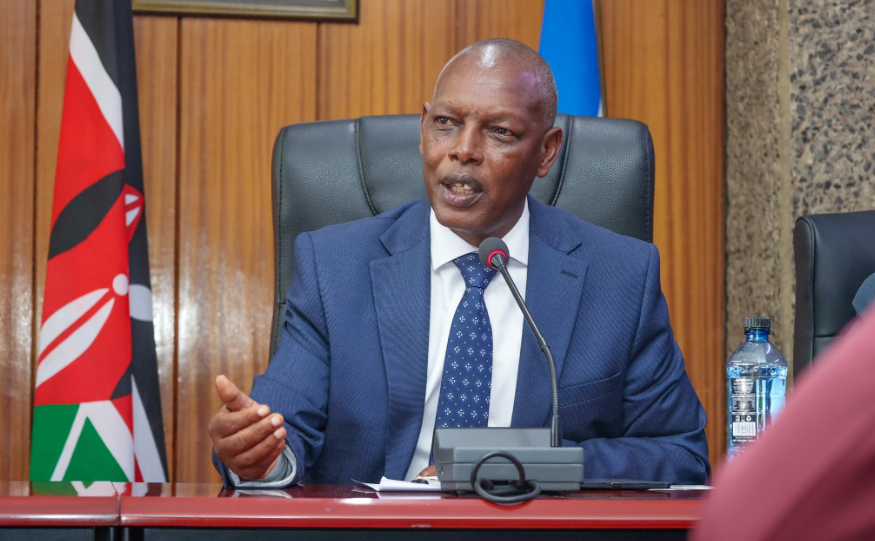Board celebrates 100 years serving tea to the rest of the world
By Nicholas Waitathu and Vanessa Sandra, October 25, 2024Tea Board of Kenya (TBK) is celebrating a century of growth and transformation in the industry. The growth in the sector has seen tea contribute 2 per cent to the gross domestic product (GDP) and 4 per cent to the agricultural GDP.
Speaking yesterday at the official launch of the Tea Industry Centenary Celebrations, Agriculture and Livestock Cabinet Secretary, Andrew Karanja (pictured) noted that the industry now supports over 600,000 farmers and impacts approximately 6.5 million Kenyans.
In 2024, the industry earnings from exports hit Sh180.57 billion from Sh138.09 billion the previous year. Notably, the performance for this year looks better compared to last year. Up to August this year, export earnings had surpassed that of last year by Sh21 billion to stand at Sh127 billion.
Climate change tides
“The whole country will witness joy as we celebrate a product that has sailed against political, economic, social and climate change tides to become a leading foreign exchange earner in Kenya,” Karanja said.
In celebration of 100 years of tea production in Kenya, the board has planned major events to highlight the historical significance, economic impact, and prospects of Kenyan tea. From November 6 to 8 TBK will host Heritage Week at Karatina University, Nyeri county designed to engage the local community and tea stakeholders in exploring the journey of tea in the past century.
From November 15 to 16, the board will also host a Kenya tea summit in Mombasa, bringing together key players from across the globe tea industry to reflect on 100 years of Kenya tea production and strategise for the future.
Speaking on the sidelines of the centenary celebrations, the CS confirmed that almost one month after the government suspended reserve for tea at the Mombasa tea auction, stocks of unsold tea stored in Kenya Tea Development Agency (KTDA) warehouses have reduced drastically.
According to him, the stock of unsold tea at the Mombasa Tea Auction has reduced by more than 85 per cent this month to less than 15 million kilograms compared to over 100 million kilos in July 2023.
“We decided to suspend the reserve price to allow key components –demand and supply of the market to prevail,” said Karanja.
Government by then had valued the unsold tea stocks at nearly Sh32 billion over years putting at stake the livelihoods of millions of farmers.
One month after being in office, Karanja directed the Tea Board of Kenya to formally inform all tea value chains of the changes which the regulator acted on October 4, 2024.
Following a downward trend of tea prices at Mombasa auction in 2021, former Uhuru Kenyatta administration established a minimum reserve price of $2.6 and $2.4 for teas from the East and West of the Rift respectively.
The creation of a minimum reserve price at $2.43 was set in June 2021 as part of stabilising the market. By then tea prices at the Mombasa tea auction had declined to below $2 per kg.
The set reserve price was a response to taming the high cost of production which had been accelerated by electricity and labour to more than $2.43.
Karanja explained that information indicating that the minimum pricing policy established in June 2021 has led to a surplus of tea disrupting market dynamics in both the East and West of the Rift prompted the reserve price deferment.
More Articles

